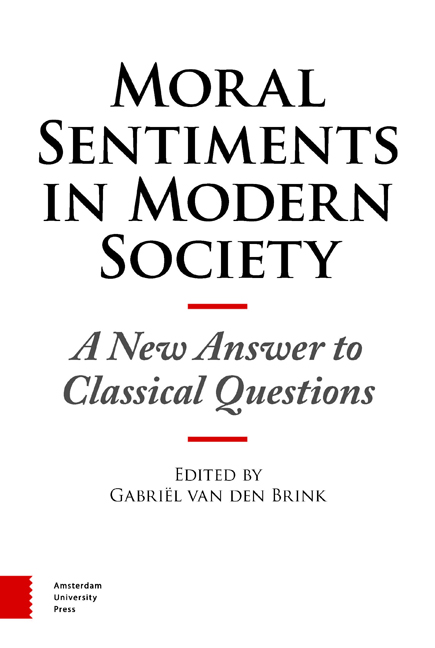Book contents
Introduction
Published online by Cambridge University Press: 02 February 2021
Summary
For two centuries, the greatest minds have voiced their doubts about the morality of man and society. Scholars have argued that spiritual values are a function of social structures, neurological networks, economic interests, political power or dominant discourses. Philosophers and writers have taught us that ethical principles are little more than a fig leaf for our basest instincts. And whoever still believes in moral values only has to follow the news for a few days in order to realise that humanity betrays its ideals day in, day out. One would expect people in the modern age to have understood by now that morality is an illusion. But the opposite is the case. Moral questions are once again (or perhaps still) at the top of the agenda, and public debate is conducted in highly normative terms. This is why we initiated a study six years ago into the meaning of moral sentiments in modern society. Although empirical data was gathered on the situation in the Netherlands, the interpretation of the data is relevant for an international audience. In this introduction, we will briefly discuss three questions: Why did we conduct this study? Why is the case of the Netherlands so interesting? And why is the issue so timely now?
Why this topic?
Looking back on the past century, one is surprised at the levity with which many intellectuals peddled their ideas. Take Friedrich Nietzsche, who proclaimed the death of God one hundred years ago. Numerous philosophers, writers and scholars have felt moved to echo him, but history has proven otherwise: God is not dead. Large parts of the world continue to hold onto a faith in something divine. Indeed, in the last ten years we have seen a revival of religious interest in many modern countries – one that is also leaving its trace in the academic literature.
In the Netherlands, the Scientific Council for Government Policy (Wetenschappelijke Raad voor het Regeringsbeleid, WRR) was one of the first to pick up on this signal. In 2006, it published Believing in the Public Domain, a substantial collection of theoretical considerations and empirical findings to which more than twenty authors contributed.
- Type
- Chapter
- Information
- Moral Sentiments in Modern SocietyA New Answer to Classical Questions, pp. 11 - 22Publisher: Amsterdam University PressPrint publication year: 2016



